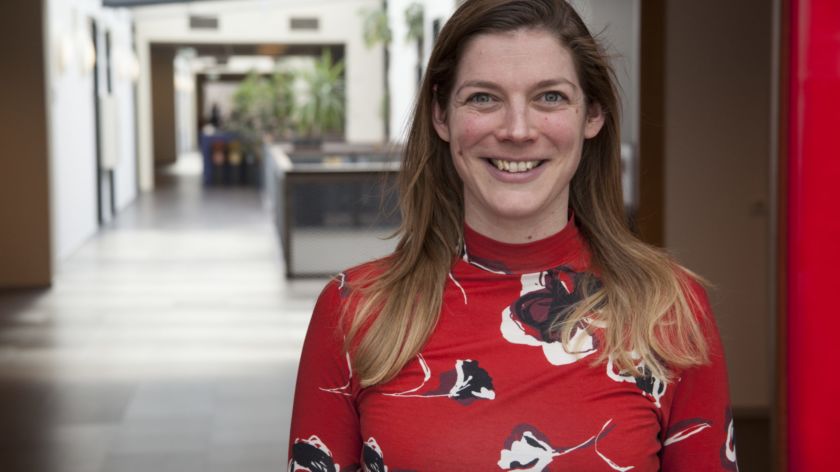How young researchers are unfairly penalised by the push to internationalise
-
 Channah Herschberg. Foto: Leoni Andriessen
Channah Herschberg. Foto: Leoni Andriessen
Excellence and internationalisation dominate ideas of what universities should aim for. How these terms are defined therefore plays a major role in the appointment of young academics. An unintended consequence is the exclusion of many good researchers, concludes PhD candidate Channah Herschberg in a recent article.
There are few words that have infiltrated the culture of universities as much as ‘excellence’ and ‘internationalisation’. But in the pursuit of these two magic concepts, universities are excluding many young researchers who would be ideally suited to an academic career. This is the conclusion reached by PhD candidate Channah Herschberg in an article published last month in the journal Higher Education.
Prestigious
She says that universities employ a very narrow definition of ‘international experience’ and ‘excellence’. ‘Selection committees for tenure-track positions in the natural sciences interpret international experience as meaning, for example, that you have worked at a prestigious lab in the US, the UK or Germany,’ says Herschberg. ‘This means that researchers who have gained experience elsewhere don’t get a look-in. As if there aren’t any good labs in Spain or Eastern Europe.’
‘People with care responsibilities, or with a partner who can’t simply up and leave, miss out’
Talented researchers who can’t easily go abroad are also excluded. Herschberg: ‘For example, people with a disability, with care responsibilities or with a partner who can’t simply up and leave. That leaves you with a very small pool of people.’
At the same time, there are big differences between faculties. Whereas the bar for ‘international experience’ is set very high in the natural sciences, ‘selection committees in the social sciences are often content with attending an international conference,’ says Herschberg. In practice, different appointment committees can interpret these terms very differently.
Criteria
There were two parts to Herschberg’s research, which she carried out jointly with professors Yvonne Benschop and Marieke van den Brink. She conducted a critical text analysis of policy documents and job postings for tenure-track positions (for promising university lecturers), looking at how the terms excellence and internationalisation were used. She also spoke to members of appointment committees to find out how they use these criteria in practice, and she was given access to their reports.
‘All that you’ll be left with are people who can cope with working 80 hours a week’
Excellence and internationalisation are neoliberal terms that universities use in their pursuit of a high position in international rankings, Herschberg points out. ‘They believe that if you promote internationalisation, you’ll also boost the excellence of your institution, and vice versa – a kind of spiral effect.’ These are worthy goals, but internationalisation and excellence aren’t clearly defined. ‘The ‘excellent’ label is considered important, but just what this means relies on assumptions. If we don’t define it better, where’s the added value?’
Working environment
Herschberg is concerned that the constant emphasis on excellence and internationalisation may come back to bite the academic world. ‘By continuing on this path, we won’t necessarily be selecting the best researchers. Nor will we ensure a healthy working environment. The current system is not sustainable. All that you’ll be left with are people who can cope with working 80 hours a week, for example’. She points to the high workload and complaints about burn-out among staff and students.
Greater awareness among selection committees will reduce the chances of inadvertent exclusion, says Herschberg. ‘More attention needs to be paid to the impact of selection criteria. Committees have to discuss this, to decide how these criteria should be precisely defined. You have to be as transparent as possible, and this includes in the job posting itself. Do you really want to insist that someone has worked in America for two years, or are there other alternatives?’
Catch-all terms
And yet there is hope. ‘A minority of the committee members I spoke to think that excellence and internationalisation are ridiculous catch-all terms. These people can really make a difference in the recruitment and selection of researchers and can ensure greater diversity in the hiring policy.’ On the other hand, they also have to contend with pressure from ‘above’ to choose candidates who do have an ‘excellent’ CV. ‘This is a faculty board requirement in the natural sciences.’
Herschberg’s research has often taken her abroad. Does that make her excellent? ‘Ha ha, I don’t have a good answer to that.’



